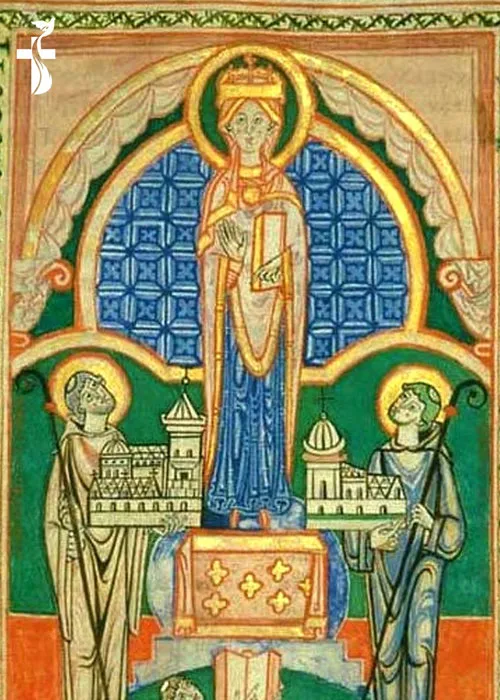
Our Lady Of Citeaux
Country : France
Year : 1098
A certain young man entered the Cistercian Monastery at Citeaux. He had been softly brought up and found the religious life very hard, especially the coarse fare that was served in the refectory. He almost died of hunger, for he could not force himself to eat the food. He prayed to Our Lady with great fervor to help him overcome this weakness of the flesh.
One night after he had prayed even more earnestly than usual, he fell asleep with the piece of bread, given him for his evening meal, in his hand; it was so hard and sour he could not eat it.
Our Lady, full of tenderness for the young souls who seek to follow her Son in the narrow way of religion, had compassion on him and came to him, saying: “Come, my son, rise up and follow me; I will give you that food of which you stand in need. Now shall you eat and be satisfied, for the bread I will give you is the banquet which my Son spread for His friends.”
He rose up full of joy at these words; and she took him by the hand, and led him to the place where the great crucifix was hung, whereon Our Lord and Savior shows His Five Sacred Wounds
“Look,” she said, “here is your feast made ready, for My Son died to make all things sweet to you. Take this crust of bread, which you so much dread, and dip it into His wounded Side, which was pierced for you, and thereby you shall know the savor of that food wherewith poverty is nourished for His sake.”
When with great awe and reverence he dipped his crust in the Wound of Our Savior’s Side, our Lady said to Him, “Ecce Panis Angelorum,” and when the novice ate of the crust, an exceeding, great peace entered his soul; his hunger was stilled, and he was refreshed in body and mind. It seemed to him the sweetest food he had ever tasted. Kneeling down, he gave thanks to Our Lord and His Blessed Mother, filled with love to endure the hardships of holy poverty; for he now knew that Our Lord can give that which makes sweet the bread of tribulation through the virtue of His Most Sacred Passion.
This shows the prudence of Our Blessed Mother in a true manner; she chose this gentle and persuasive way to correct the monk of his weakness, when all other means might have failed.



